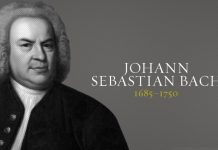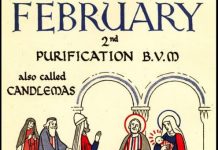Anthony Esolen captures in a vivid and clear way what is wrong with the manner in which the Novus Ordo Mass is usually celebrated: Quodlibet-ally, as we might put it, or, as he does, ‘whatever’, as in whatever strikes the fancy of the priest, the choir, the congregation, the youth, the elderly the, well, the ‘whoever’. Hymns, ad-libs, shaking hands, greetings, jokes, announcements, spontaneous intercessions, and so on.
We should recall that the Liturgy, especially the Holy Mass, is something given to us, not something we do, but rather something God has done, and does, for us. The sacraments work primarily ex opere operato, from the very work being done, and our ‘active participation’, the participatio actuosa of which the Vatican Council speaks, is primarily interior, our devotion, our prayer, our meditation, our entering into the ‘mysteries of our salvation’.
Most of the Mass is already ‘set’, if you will, with proper antiphons, the introit, the offertory, the communion, all set to Gregorian tones, in proper Latin, if you will, or, as is now permitted (and definitely not prescribed) in the vernacular. What Esolen says about the Mass, I tried to say about liturgical music a while back.
We need not try so hard to make things up, but we should try harder to do what the Church wants us to do: Learn the chants, some Latin (still the Church’s official language), and receive with a prayerful and joyful heart and mind what God through Christ still does for us, and the salus mundi, the salvation of the whole world.
My pilgrimage continues, still in Scotland, where I have been blessed with daily Mass, this morning at the local Carmelites in Dumbarton. The nuns are all elderly, but their witness to the beauty of consecrated life, along with their own fidelity to the liturgy, stands as a witness in its own ineffable way.











